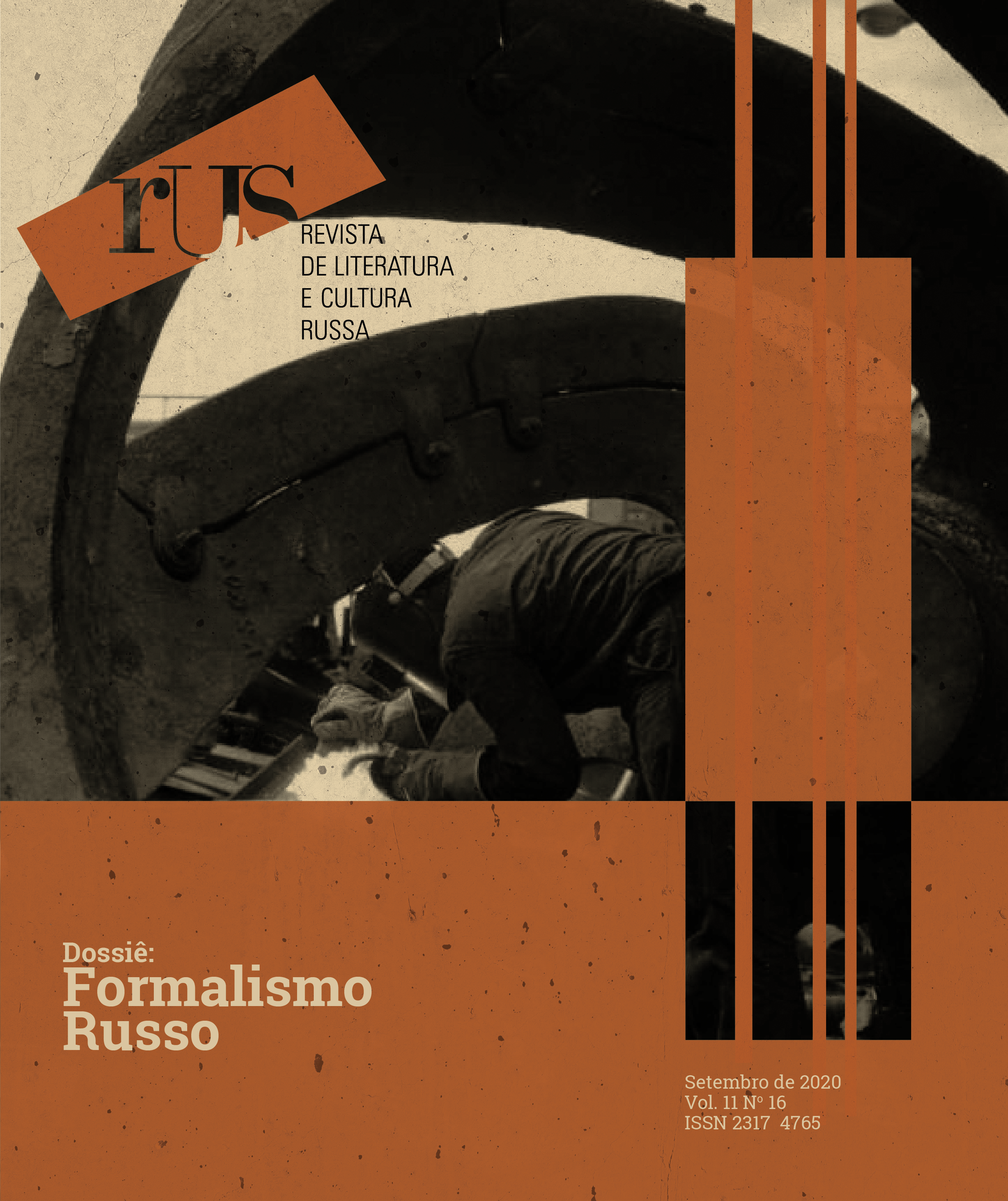Chernyshevsky: Between the Determinism and the Revolution
DOI:
https://doi.org/10.11606/issn.2317-4765.rus.2020.169969Keywords:
Rationalism, Sensibility, Revolution, New PeopleAbstract
The following article is about the Russian philosopher N. Chernyshevsky. To be precise, our interest is to comprehend to what extent it is fair that one considers only the rationalistic and deterministic characteristics of his work – something one has come to expect when the reading is in the light of the most acclaimed interpretations, as Dostoevsky’s. In this respect, the article followed a particular path to make the idea more understandable by: (i) exposing Chernyshevsky’s ethical theory in “The Anthropological Principle in Philosophy”; (ii) discussing how this theory build the characters of the novel What is to be done?; (iii) and analyzing one of the characters in particular: Rakhmetov.
Downloads
References
BERMAN, M. Tudo o que é sólido se desmancha no ar. São Paulo: Companhia das Letras, 1986.
BOBBIO, N. Dicionário de Política. 11ª ed. Tradução de Carmen C. Varille et. al. Brasília: Editora da UnB, 1998.
DOMINGUES, C. J. T. L. Nikolai Gavrílovitch Tchernichévski e a intelligentsia russa: filosofia e ética na segunda metade do século XX. Dissertação de Mestrado. Niterói, Universidade Federal do Fluminense, 2015.
DROZD, A. M. Chernyshevskii’s “What is to Be Done”: A Reevaluation. Evanston: Northwestern University Press, 2001.
FRANK, J. Pelo prisma russo. Tradução de Paula Cox Rolim e Francisco Achcar. São Paulo: Edusp, 1992.
FREDE, V. Doubt, atheism and the Nineteenth-Century Russian Intelligentsia. Madison: University of Wisconsin Press, 2011.
LUKÁCS, G. "Introdução à publicação alemã de O que fazer? de Tchernichévski (1951)”. Traduzido por Gabriel S. Philipson. ArteFilosofia, n. 22, Ouro Preto, 2017, p. 4-29.
MORRIS, M. Saints and revolutionaries: The ascetic hero in Russian literature. Albany: State University of New York Press, 1993.
PLEKHANOV, G. Arte e vida social. Tradução de Eduardo Sucupira Filho. São Paulo: Brasiliense, 1964.
POLUNOV, Alexander. Russia in the nineteenth century: Autocracy, Reform and Social Chance, 1814-1914 (The New Russian History). New York: M.E. Sharpe, 2005.
SCANLAN, J. P. “Nicholas Chernyshevsky and philosopical Materialism in Russia”, Journal of the History of Philosophy, v. 8, n. 1, Baltimore/Maryland, 1970, p. 65-86.
TCHERNICHÉVSKI, N. G. O que fazer?. Tradução de Angelo Segrillo. Lisboa: Guerra & Paz Editores, 2017.
TCHERNICHÉVSKI, N. G. “The Anthropological Principle in Philosophy”. In: ____. Selected Philosophical Essays. Honolulu: University Press of the Pacific, 2002.
TURIN, S.P. Nicholas Chernyshevsky and John Stuart Mill. The Slavonic and East European Reviwe, v. 9, n. 25, 1930, p. 29-33.
WALICKI, Andrzej. A history of Russian thought: from the enlightenment to Marxism. Translated by Hilda Andrews-Rusiecka. California: Stanford University Press, 1979.
Downloads
Published
Issue
Section
License
Copyright (c) 2020 Paulo Cesar Jakimiu Sabino

This work is licensed under a Creative Commons Attribution-NonCommercial-ShareAlike 4.0 International License.
Authors who publish in RUS agree to the following terms:
a. Authors retain copyright and grant the journal right of first publication with the work simultaneously licensed under a Creative Commons Attribution 4.0 International License (CC BY-NC-SA 4.0) that allows others to share the work with an acknowledgement of the work’s authorship and initial publication in this journal.
b. Authors are able to enter into separate, additional contractual arrangements for the non-exclusive distribution of the journal’s published version of the work (e.g., post it to an institutional repository or publish it in a book), with an acknowledgement of its initial publication in this journal.
c. Authors are permitted and encouraged to post their work online (e.g., in institutional repositories or on their website) prior to and during the submission process, as it can lead to productive exchanges, as well as earlier and greater citation of published work (See The Effect of Open Access).





